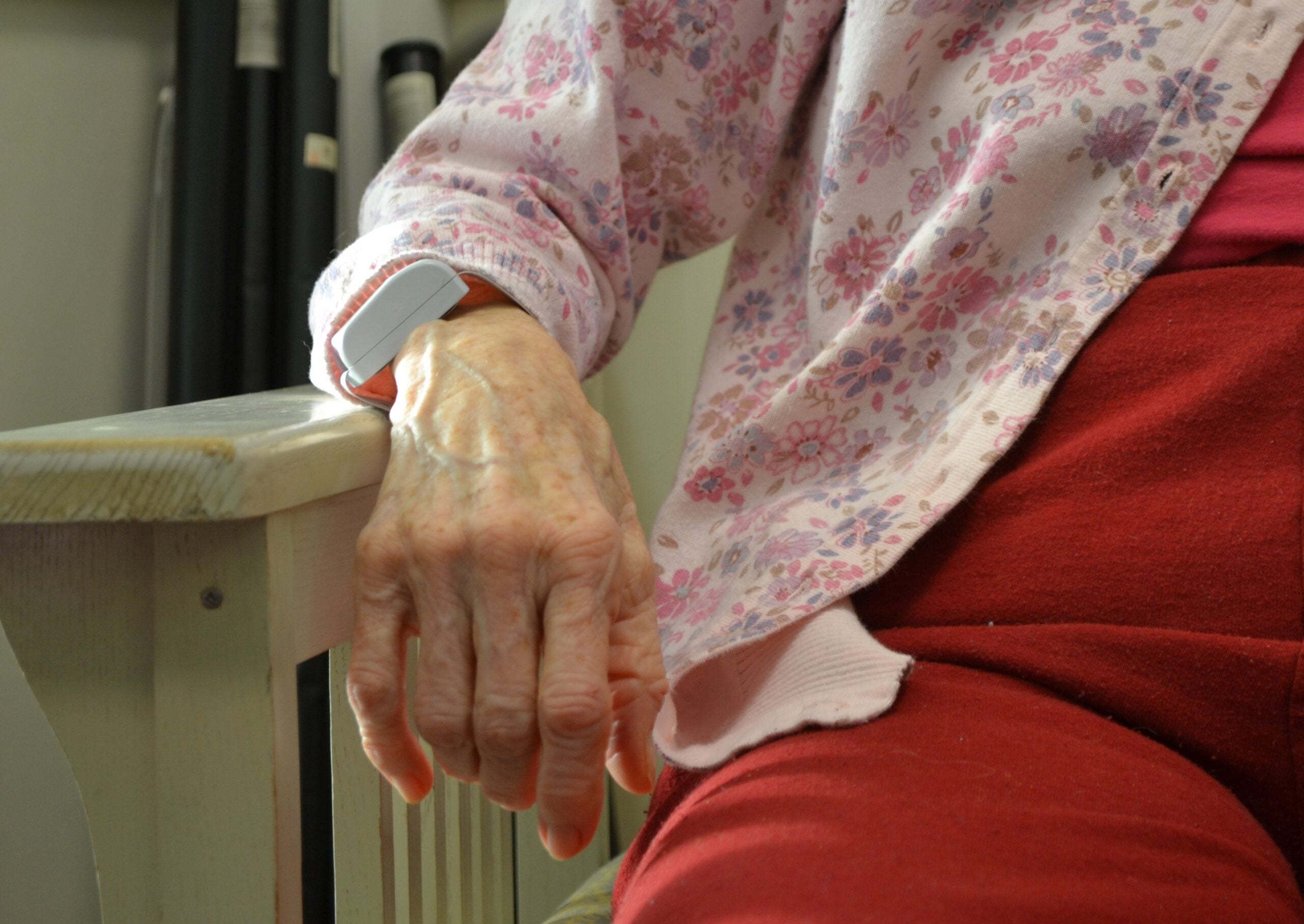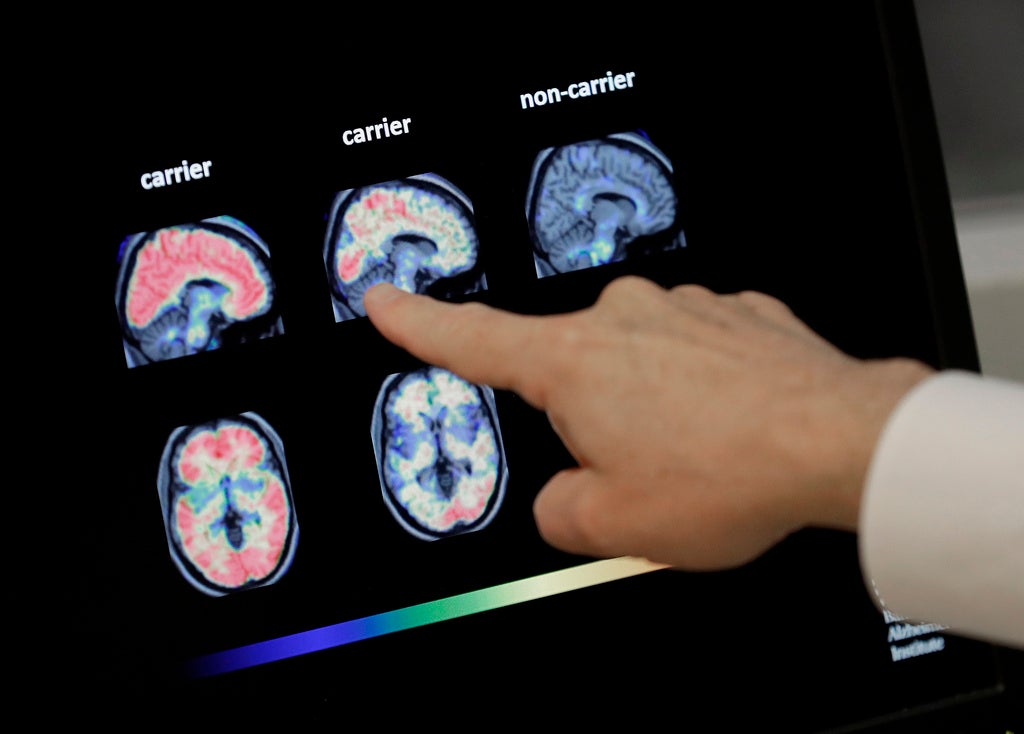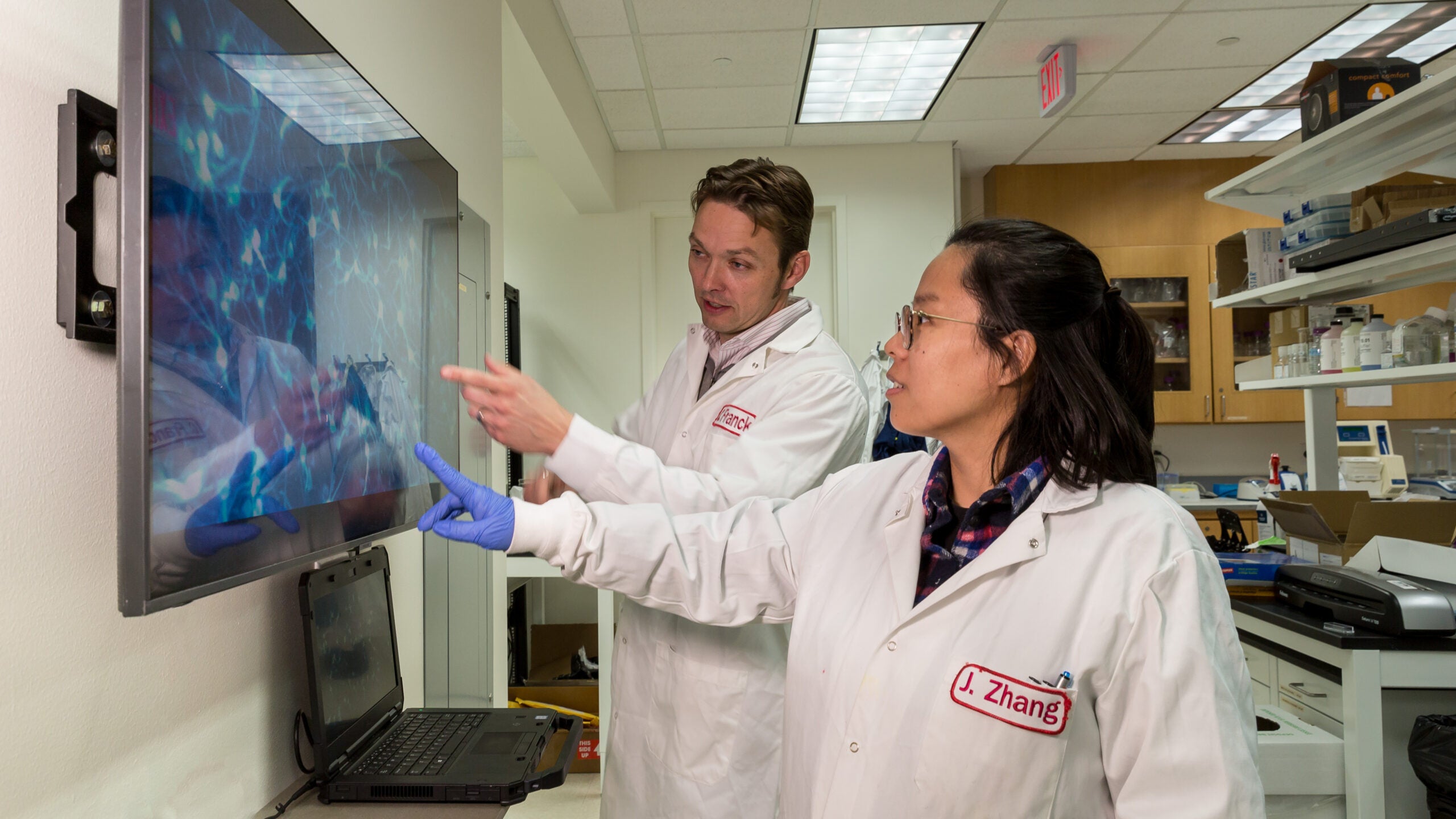Alzheimer’s disease research is one of the first projects supported by a fund created to commercialize medical technology developed by the University of Wisconsin School of Medicine and Public Health.
The Wisconsin Economic Development Corporation and the Wisconsin Technology Innovation Initiative are providing $1 million to find possible therapies for Alzheimer’s.
Sterling Johnson, a UW geriatrics professor, oversees a study which started in 2001 focusing on those with a family history of Alzheimer’s.
Stay informed on the latest news
Sign up for WPR’s email newsletter.
“Over the last 14 years or so, the field has really advanced in a dramatic way, and we can now use imaging and spinal fluid techniques to understand the pathology in Alzheimer’s,” Johnson said. “And that’s how we know that this disease occurs well before symptoms occur.”
He said that “biomarkers,” or biological indicators of disease or condition, found through imaging and spinal fluid can be a helpful addition to more traditional measures of identifying Alzheimer’s, such as comprehension and memory testing.
“When we use cognition as the outcome in a clinical trial that may have quite a bit of measurement variability because cognition is affected by how much sleep you had the night before, how anxious you are, the medicines you are taking,” he said “But, these biomarkers, they are much more stable and precise. And so, by using these things as outcome in (clinical) trials, we can actually use fewer subjects and get to answers faster.”
Johnson said there are people who have signs of Alzheimer’s in their brain but have no symptoms of dementia. Part of the study involves whether lifestyle and genetics foster this resilience.
Wisconsin Public Radio, © Copyright 2025, Board of Regents of the University of Wisconsin System and Wisconsin Educational Communications Board.





